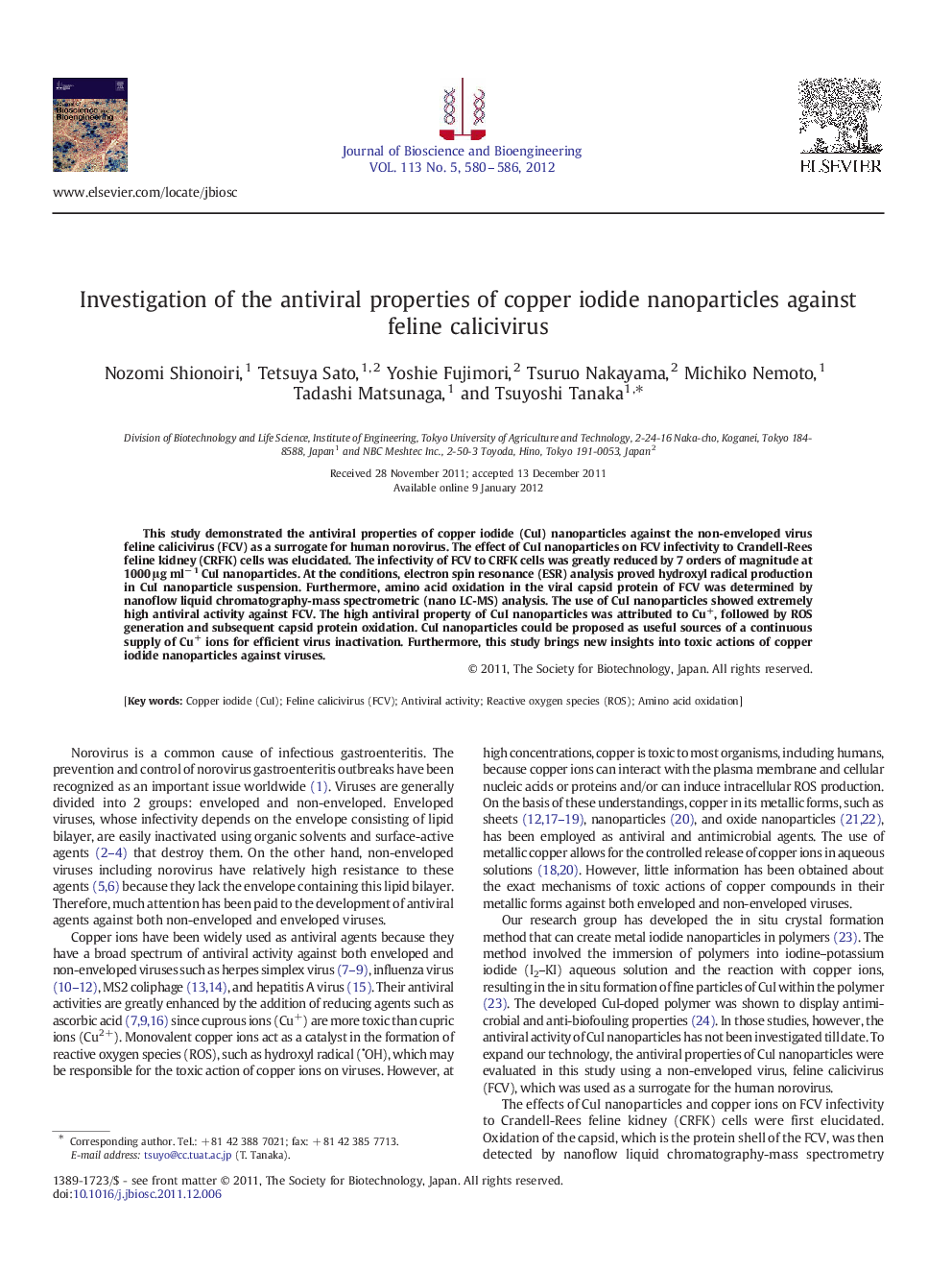| Article ID | Journal | Published Year | Pages | File Type |
|---|---|---|---|---|
| 21137 | Journal of Bioscience and Bioengineering | 2012 | 7 Pages |
This study demonstrated the antiviral properties of copper iodide (CuI) nanoparticles against the non-enveloped virus feline calicivirus (FCV) as a surrogate for human norovirus. The effect of CuI nanoparticles on FCV infectivity to Crandell-Rees feline kidney (CRFK) cells was elucidated. The infectivity of FCV to CRFK cells was greatly reduced by 7 orders of magnitude at 1000 μg ml− 1 CuI nanoparticles. At the conditions, electron spin resonance (ESR) analysis proved hydroxyl radical production in CuI nanoparticle suspension. Furthermore, amino acid oxidation in the viral capsid protein of FCV was determined by nanoflow liquid chromatography-mass spectrometric (nano LC-MS) analysis. The use of CuI nanoparticles showed extremely high antiviral activity against FCV. The high antiviral property of CuI nanoparticles was attributed to Cu+, followed by ROS generation and subsequent capsid protein oxidation. CuI nanoparticles could be proposed as useful sources of a continuous supply of Cu+ ions for efficient virus inactivation. Furthermore, this study brings new insights into toxic actions of copper iodide nanoparticles against viruses.
